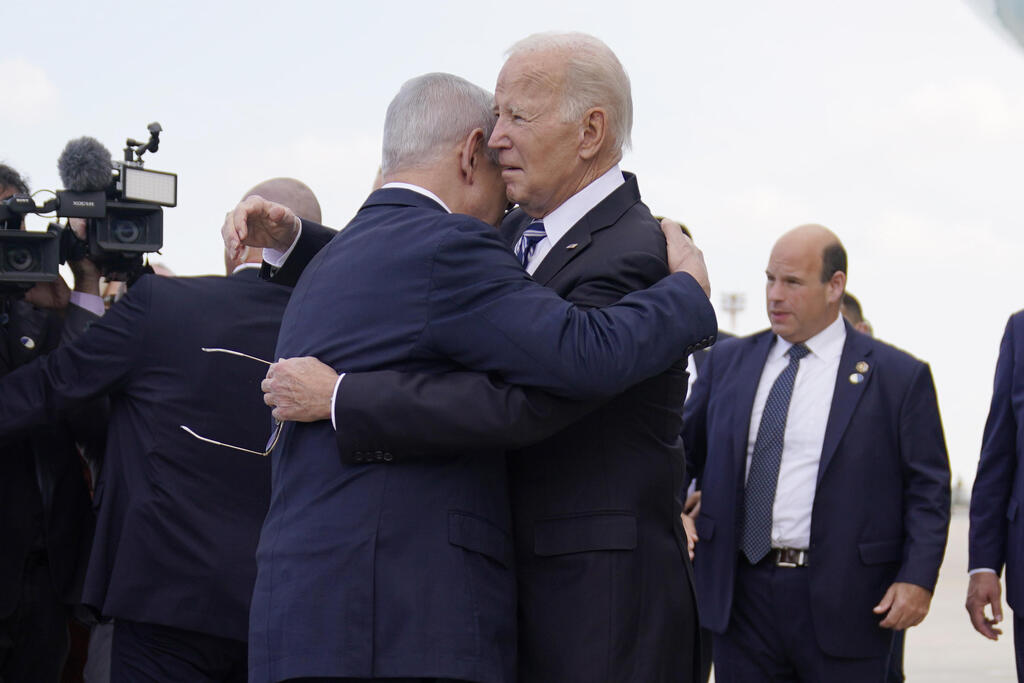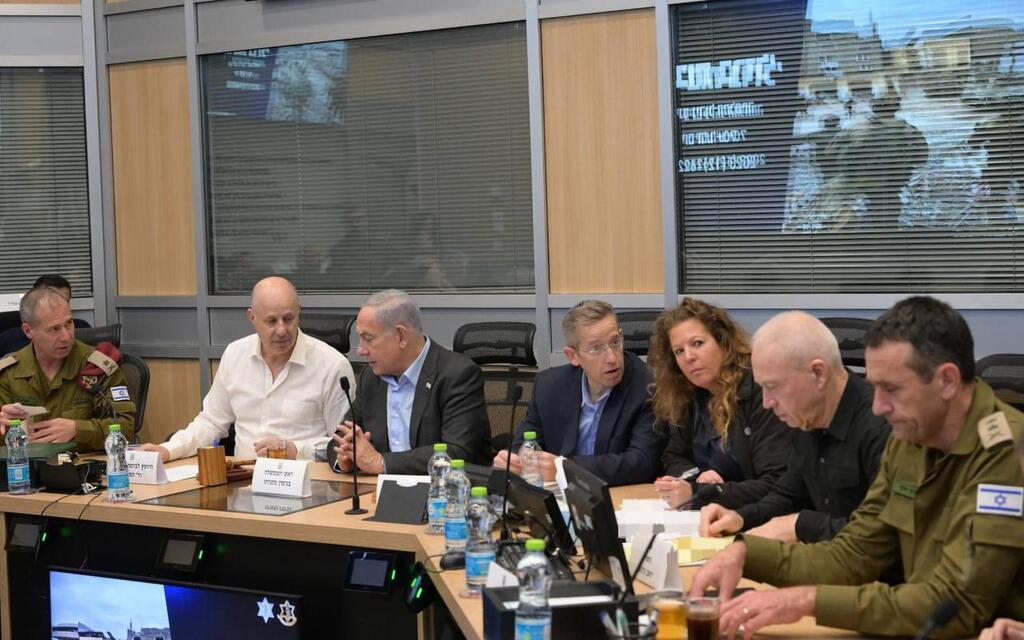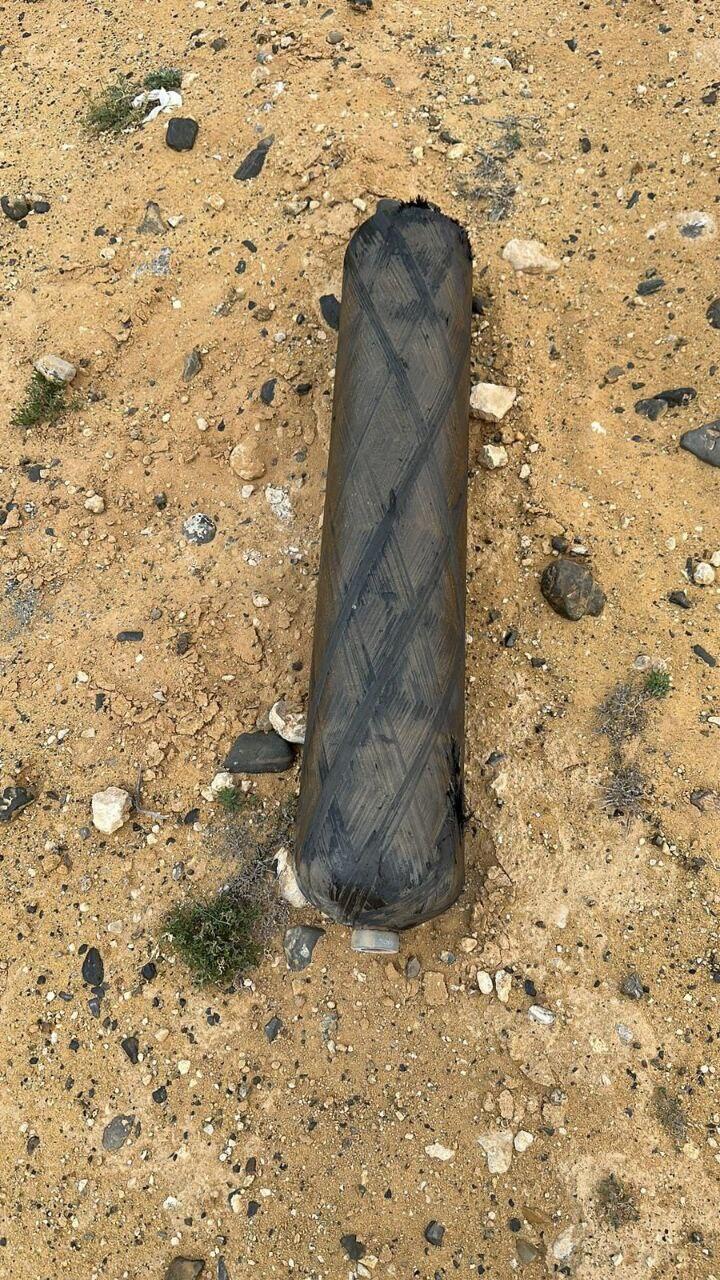Four points on one of the most dramatic nights we've experienced; a night that can potentially change the Middle East.
The first point is that it's not entirely over. The defense establishment and top decision-makers are clear that Iran must be deterred, so not every assassination in Syria or Lebanon will lead to Iran firing 100 missiles at Israel. Israel can't afford any more occasional launches. Israel may be seeking policy changes and other assurances from the U.S., perhaps those that would remove the need for a response in the future. The Iranians need to feel that they lost something as a result of their attack on Saturday.
The IDF published on Sunday photos of the light damage caused to the Nevatim Air Force Airbase in southern Israel by Iranian missiles, begging the question should Israel respond according to Iran's intention to destroy a major IDF asset or act according to the underwhelming results of the Iranian operation.
Washington expects the response to be based on the results, meaning there may not be any retaliation at all. If Israel responds, Iran will definitely react. Raising the stakes, potentially leading to a regional escalation contrary to the U.S. stance, seems like a significant risk. Retribution and deterrence do not necessarily have to be served immediately. Additionally, Israeli senior officials told their U.S. counterparts that declaring an official coalition against Iran could lower the response's intensity.
It is impossible to escape the impression that the entire top Israeli political and military echelon is making decisions under the trauma of the blunders of October 7. This affects the clarity and soundness of decisions made. Our leaders have repeatedly proven their readiness to strike with lethal force and need to ignore the professional dogs of war who push to raise the stakes of a regional war every time.
5 View gallery


Ben-Gvir and Smotrich call for retaliation while Biden calls for restraint
(Photo: Alex Kolomoisky, Haim Zach, Ltd)
The second point is factual. The Israeli intelligence community failed to predict the Iranian retaliation before assassinating IRGC general Mohammad Reza Zahedi in Damascus. The inaccurate intelligence assessment brought us closer than ever to a regional war. When considering the assassination, Israel's intelligence community, including Mossad, estimated that Iran would not would not overreact overtly or directly.
They anticipated a harsh response from proxy forces, such as Hezbollah and the Houthis, but without direct Iranian involvement. However, we experienced an unprecedented, direct Iranian attack on Israel. Mossad raised the issue about a month before the operation but was not aware that the operation would take place near the Iranian embassy in central Damascus.
The responsibility for the high-stakes assassination lies with the decision-makers, namely the prime minister, the defense minister and the War Cabinet. The ministers make the decision based on the intelligence they receive. The question of whether there's a chance of war resulting from the tactical assassination (Zahedi is not Imad Mughniyeh and certainly not Qasem Soleimani) is critical.
To summarize, the intelligence community failed. Six months after October 7, while Israel is at war on two fronts, the IDF approved an operation based on an intelligence assessment that it would not lead to a regional escalation. Various scenarios were presented, but the main scenario predicted Iran would refrain from attacking. The effective intelligence before the Iranian attack does not make up for the failure to assess the Iranian response after the assassination in Damascus. "It turned out alright, but it's not an excuse," said a security official.
The third point concerns the Iranian failure. The Iranians sought to create a new equation in the Middle East, one that would protect their senior figures from assassinations. In light of their performance on Saturday, it is doubtful whether Israel will adhere to warnings.
The most important decision of the political echelon is not the "response" but the policy. If Israel allows Iran to launch missiles and drones from time to time as it does for Hamas, it will mean a terrible defeat for us. Although unlikely, the IDF simply can't afford to remain in the state it was for the past ten days.
The Iranian failure is broader. They abandoned their long-term strategy and their military action exposed a regional and international coalition ready to stand against them. There are two competing visions for the Middle East: The first includes an international coalition consisting of moderate countries and Israel, led by the Americans. The second vision portrays Iranian dominance in the region, and Israel isolated with the U.S. kicked out of the region.
On April 14, the Iranian vision weakened and in turn, the moderate alliance vision strengthened. The Iranians surely understand this. Moreover, the world will pay closer attention to their nuclear program, given their aggressive behavior. Israel must exploit these weaknesses.
The fourth point is the loss of Israeli deterrence. Were it not for October 7 and Israel's diplomatic isolation, who would have thought Iran would wage war against it on grounds of a single assassination in Damascus? There is no chance the Iranians would have launched hundreds of missiles and drones at Israel following the assassination of a general abroad before.
5 View gallery


The failed Iranian attack shows the importance of US relations
(Photo: AP Photo/Evan Vucci)
Israeli deterrence looks all but lost when considering that Israel, according to foreign reports, killed the head of the Iranian nuclear program on Iranian soil and used overwhelming force to subdue Hamas in Gaza.
On the contrary, Iran drew encouragement from the tensions between Israel, the international community and the U.S. Western intelligence sources said this has led Tehran to choose an aggressive approach, resulting in a direct strike on Israel.
The belief that Israel is weak and will have difficulty responding to threats, given the perceived flimsy backing it receives from the world, prevails. Of course, the essence is not international legitimacy, but Israel's difficult situation, fighting a tough war on two fronts, in the north and south. Restoring deterrence requires victory, but also requires warm relations with the White House, an important issue to remember today, and always.






